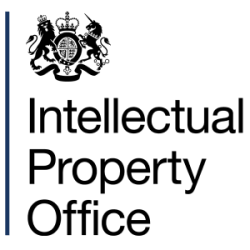A new Code of Conduct for the Boards of Appeal of the European Patent Office will enter into force on 1 July 2022. The new Code of Conduct contains standards for judicial conduct concerning, in particular, independence, integrity, impartiality, loyalty, diligence and discretion and building on best practices and recommendations at national and international level.
Background
The Boards of Appeal are the first and final judicial instance in the procedures before the European Patent Office. The members of the Boards of Appeal and the Enlarged Board of Appeal are not bound by any instructions in their decisions but are only bound by the European Patent Convention (Article 23(3) EPC).
In accordance with Rule 12b EPC, the Presidium of the Boards of Appeal adopted a new Code of Conduct on 23 November 2021, which was approved by the Administrative Council at its 169th meeting on 14/15 December 2021 (CA/D 21/21). The new Code of Conduct will enter into force on 1 July 2022 and contains comprehensive ethical standards for judicial conduct. It will replace the current Code of Conduct, which is limited to the external activities of board members.
The new Code of Conduct builds on best practices and recommendations for judicial conduct at national and international level. These include the Code of Conduct of the Court of Justice of the European Union, the Code of Conduct of the German Constitutional Court, the Guide to Judicial Conduct of the UK Supreme Court, the Bangalore Principles of Judicial Conduct 2002, the Judicial Ethics Report 2009-2010 by the European Network of Councils for the Judiciary, Opinion no. 3 of the Consultative Council of European Judges and the Resolution on Judicial Ethics of the European Court of Human Rights.
Key elements
Considering the importance of public confidence in the independence of the judiciary and the rule of law, the new Code of Conduct (CoC) codifies and sets the following standards for members and chairs of the Boards of Appeal and the Enlarged Board of Appeal (referred to as “Members”):
- Members have complete independence in the exercise of their judicial duties, and perform them with integrity, impartiality, loyalty, diligence and discretion (Article 3 CoC).
- Members exercise their judicial function independently on the basis of their own assessment of the facts and understanding of the law, without regard to any extraneous influences, inducements, pressures, threats or interference. They neither seek nor follow any instructions and do not accept gifts or favours of any kind which call into question their independence (Article 4 CoC).
- Members perform their duties impartially without favour, bias or prejudice and conduct themselves in a manner which maintains the confidence of the public and the parties in their impartiality. They treat all persons who appear before them equally and are aware of and respect diversity in society (Article 5 CoC).
- Members are loyal to the rule of law and exercise the powers entrusted to them within the limits of the EPC. They perform all judicial duties diligently, fairly, efficiently and without undue delay and treat parties, representatives, witnesses and others with dignity and respect while endeavouring to maintain order and decorum in all proceedings (Article 6 CoC).
- Members preserve the secrecy of deliberations and exercise the utmost discretion with regard to all information acquired in relation to their judicial function (Article 7).
In addition to these and further standards, the Code of Conduct also regulates Members’ external activities such as their participation in teaching or scientific work, as well as the duties of Members after ceasing to hold office (Articles 8, 11 CoC).
The proper application of the Code of Conduct is ensured by the President of the Boards of Appeal, who will in this task be assisted by an Advisory Committee consisting of Members (Article 9 CoC).











